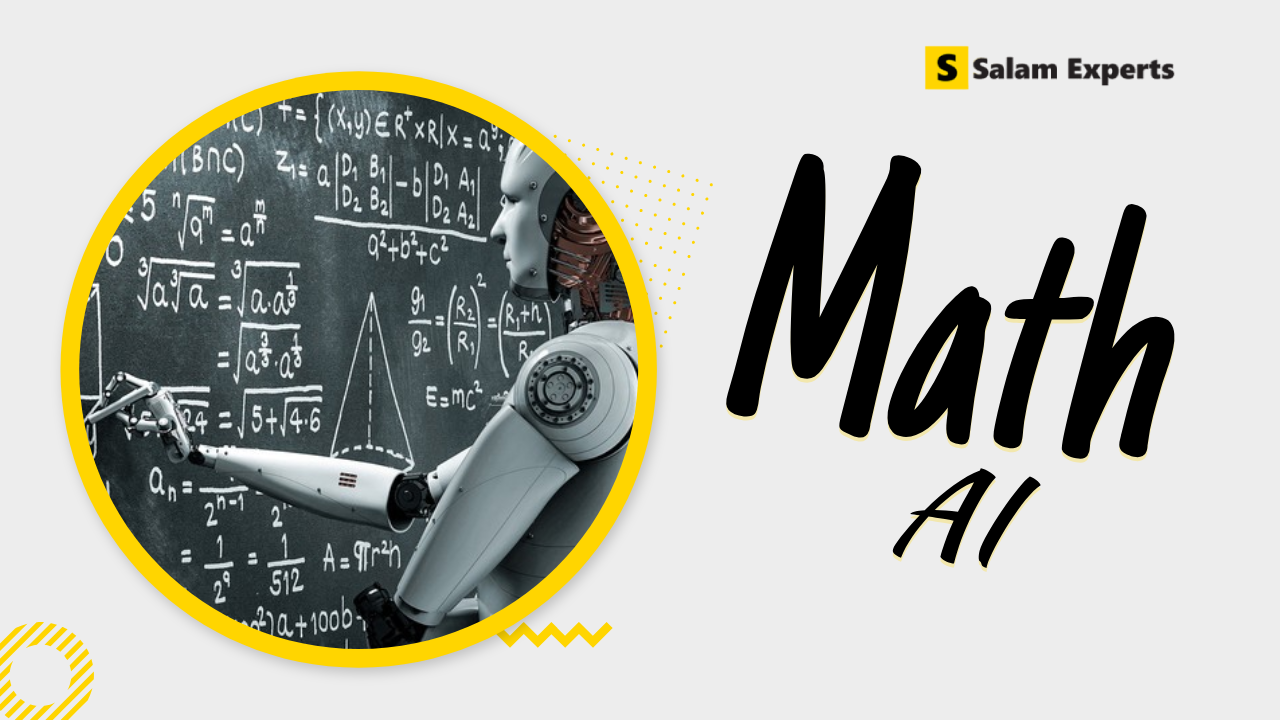Math AI: Transforming Discovery and Innovation in Mathematics

In the realm of mathematics, the integration of artificial intelligence (AI) has heralded a new era of problem-solving and discovery. From automating tedious calculations to uncovering patterns in vast datasets, AI algorithms are revolutionizing the way mathematicians approach complex problems. This article explores the multifaceted role of AI in mathematics, examining its applications, challenges, and potential implications for the field.

Key Highlights
- Math AI revolutionizes problem-solving, uncovering patterns, and optimizing systems with AI algorithms.
- Challenges in implementing Math AI include interpretability, data dependency, and ethical considerations.
- Despite limitations, Math AI holds promise for interdisciplinary collaboration and innovation in diverse domains.
The Evolution of Math AI
The integration of AI techniques in mathematics has a rich history dating back to the mid-20th century. Early developments focused on symbolic computation, with systems like Macsyma and Mathematica paving the way for automated theorem proving and algebraic manipulation. As computational power increased, researchers began exploring machine learning algorithms for tasks such as function approximation, optimization, and pattern recognition.
Today, the landscape of math AI encompasses a diverse array of techniques, including neural networks, genetic algorithms, and probabilistic reasoning. These tools enable mathematicians to tackle problems that were once considered intractable, from proving complex theorems to optimizing real-world systems.
Benefits of Math AI
The benefits of Math AI include:
- Efficiency: Math AI automates tedious calculations, speeding up problem-solving processes and reducing human error.
- Insight Discovery: AI algorithms uncover hidden patterns, relationships, and trends in large datasets, leading to discoveries and insights.
- Optimization: Math AI optimizes systems and processes, maximizing efficiency and resource allocation in various domains.
- Personalization: AI-powered tutoring systems adapt to individual learning styles and pace, providing personalized instruction and support in mathematics education.
- Enhanced Decision Making: Math AI provides data-driven insights and predictions, aiding decision-making processes in finance, healthcare, and other fields.
Got fascinated about the Integration of AI in Math, Go and read our blog on Advanced AI technology “Robust AI“.
Applications
Applications of Math AI span various domains and include:
- Pure Mathematics: AI aids in theorem proving, conjecture exploration, and discovering new mathematical patterns.
- Engineering: It optimizes designs, solves complex equations in structural analysis, and assists in modeling physical systems.
- Finance: AI-driven algorithms analyze market data for trading strategies, risk assessment, and portfolio optimization.
- Healthcare: It predicts disease outcomes, optimizes treatment plans, and analyzes medical imaging for diagnostics.
- Computer Science: AI algorithms are used in cryptography, data compression, and algorithm optimization.
- Physics: It assists in solving complex equations in quantum mechanics, fluid dynamics, and statistical physics.
Challenges
Implementing Math AI faces several challenges:
- Interpretability:
AI algorithms often lack transparency, making it difficult for users to understand how they arrive at solutions. In mathematics, where clarity and rigor are paramount, this lack of interpretability can be a significant obstacle. - Data Availability and Quality:
Developing AI models requires vast amounts of data, and obtaining high-quality, labeled datasets in mathematics can be challenging. Additionally, mathematical concepts may not always be easily quantifiable or represented in a format suitable for machine learning. - Domain Specificity:
Mathematical problems vary widely across different domains, from algebra to calculus to topology. Developing AI systems that can effectively address the diverse range of mathematical challenges is a complex task requiring domain expertise and careful algorithm design. - Computational Complexity:
Many mathematical problems are computationally complex, requiring significant computational resources to solve. AI algorithms may struggle to efficiently handle these complex problems, limiting their practical applicability. - Generalization:
AI models trained on specific datasets may struggle to generalize to new or unseen data. In mathematics, where problems often involve abstract reasoning and creativity, ensuring that AI systems can generalize beyond their training data is a critical challenge.
Challenges of Implementation in Education
- Accessibility and Equity:
One of the primary challenges is ensuring that math AI tools are accessible to all students, regardless of their socioeconomic background or access to technology. Disparities in access to devices, internet connectivity, and technological literacy can exacerbate inequalities in education. - Curriculum Alignment:
Educators must ensure that AI-powered tools complement existing instructional materials and support the development of key mathematical concepts and skills. - Teacher Training and Professional Development:
Many educators may lack the necessary training and expertise to effectively integrate it into their teaching practices. Providing ongoing professional development opportunities and support for teachers is essential to enhance their confidence and competence in using AI technologies in the classroom. - Data Privacy and Security:
Math AI tools often rely on student data for personalized learning experiences and assessments. - Ethical Use of AI:
Educators must navigate ethical considerations related to the use of AI in math education, including issues of bias, fairness, and transparency. They must critically evaluate AI algorithms and tools to ensure that they do not perpetuate inequalities or reinforce stereotypes based on factors such as race, gender, or socioeconomic status.
Limitations
Math AI, while promising, faces several limitations that affect its practical application and impact:
- Interpretability:
Many AI algorithms used in mathematics, particularly deep learning models, are often considered “black-box” systems. This means they produce results without clear explanations of how those results were reached. Lack of interpretability can hinder trust and understanding, especially in complex mathematical contexts. - Data Dependency:
AI algorithms heavily rely on large datasets for training and validation. Acquiring labeled data for training mathematical AI models can be challenging, particularly for niche or abstract domains. Limited or poor-quality data can restrict the performance and generalization of these models. - Creativity:
AI algorithms excel at tasks involving pattern recognition and optimization but may struggle with problems requiring creative insight or abstract reasoning. Mathematics often involves innovation and ingenuity, qualities that are difficult to replicate in AI systems. - Domain Specificity:
Many AI math systems are tailored to specific mathematical domains or problem types, such as algebra or calculus. This specialization limits their applicability to interdisciplinary problems or those spanning multiple domains. - Computational Complexity:
Some mathematical problems are inherently complex and computationally intensive, requiring significant resources to solve. While AI can accelerate certain aspects of problem-solving, scalability remains a challenge for problems with large input spaces or high computational complexity.
Ethical Considerations
As with any technology, the integration of AI in mathematics raises ethical considerations. One concern is the potential for bias in AI algorithms, which can perpetuate inequalities and discrimination. For example, a machine learning model trained on historical data may inadvertently encode biases present in the training dataset, leading to unfair outcomes or decisions.
Conclusion
The integration of AI in mathematics represents a paradigm shift in the way mathematicians approach problems and discoveries. From automating routine tasks to unlocking new avenues of exploration, math AI has the potential to revolutionize the field in profound ways.
However, realizing this potential requires addressing challenges related to interpretability, bias, and ethical considerations. By embracing the opportunities and confronting the challenges, mathematicians can leverage AI as a powerful tool for innovation and discovery in the years to come.

